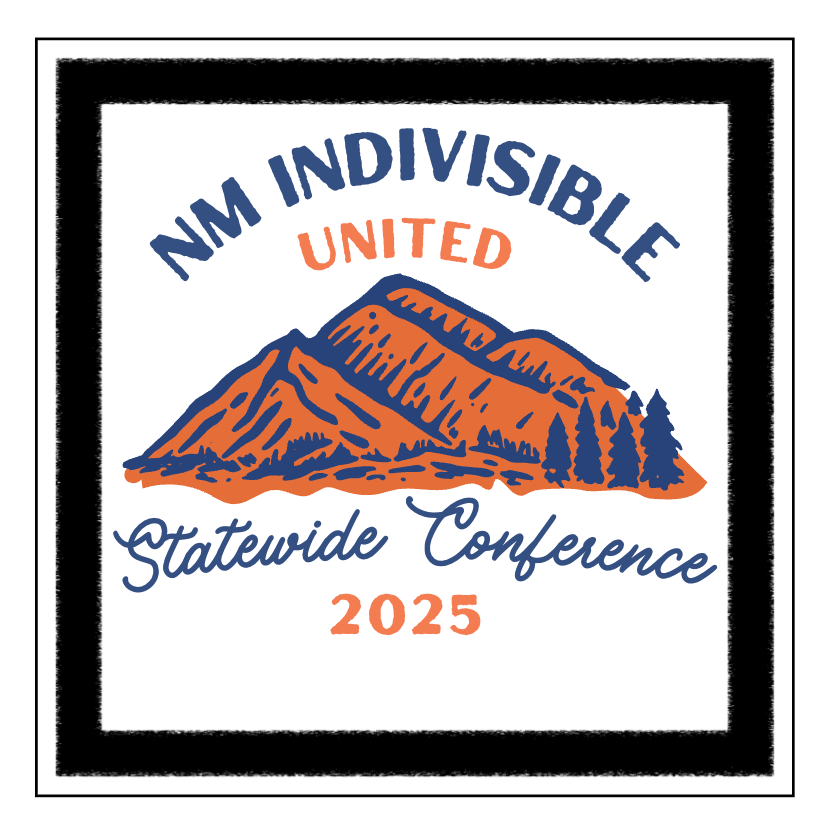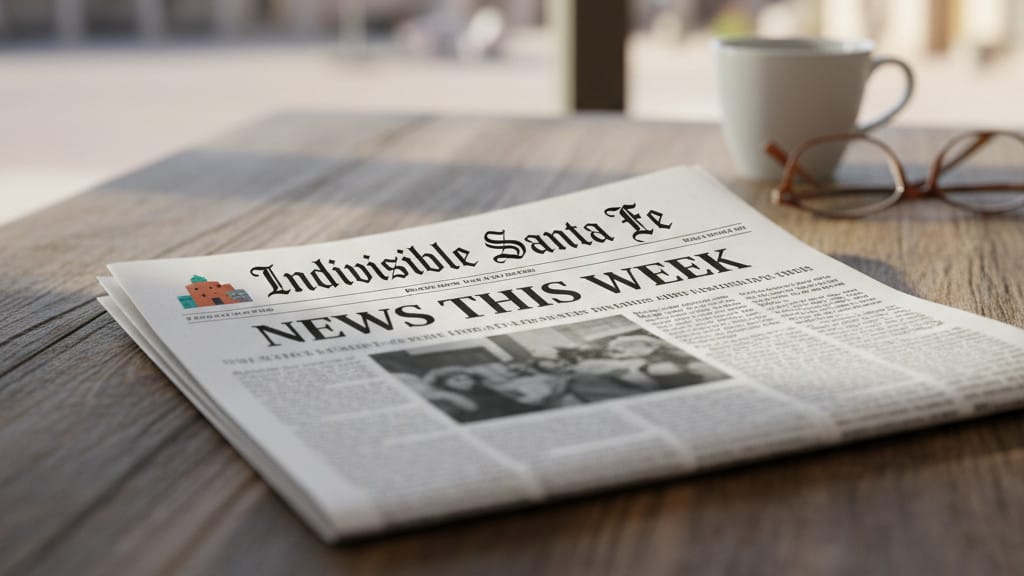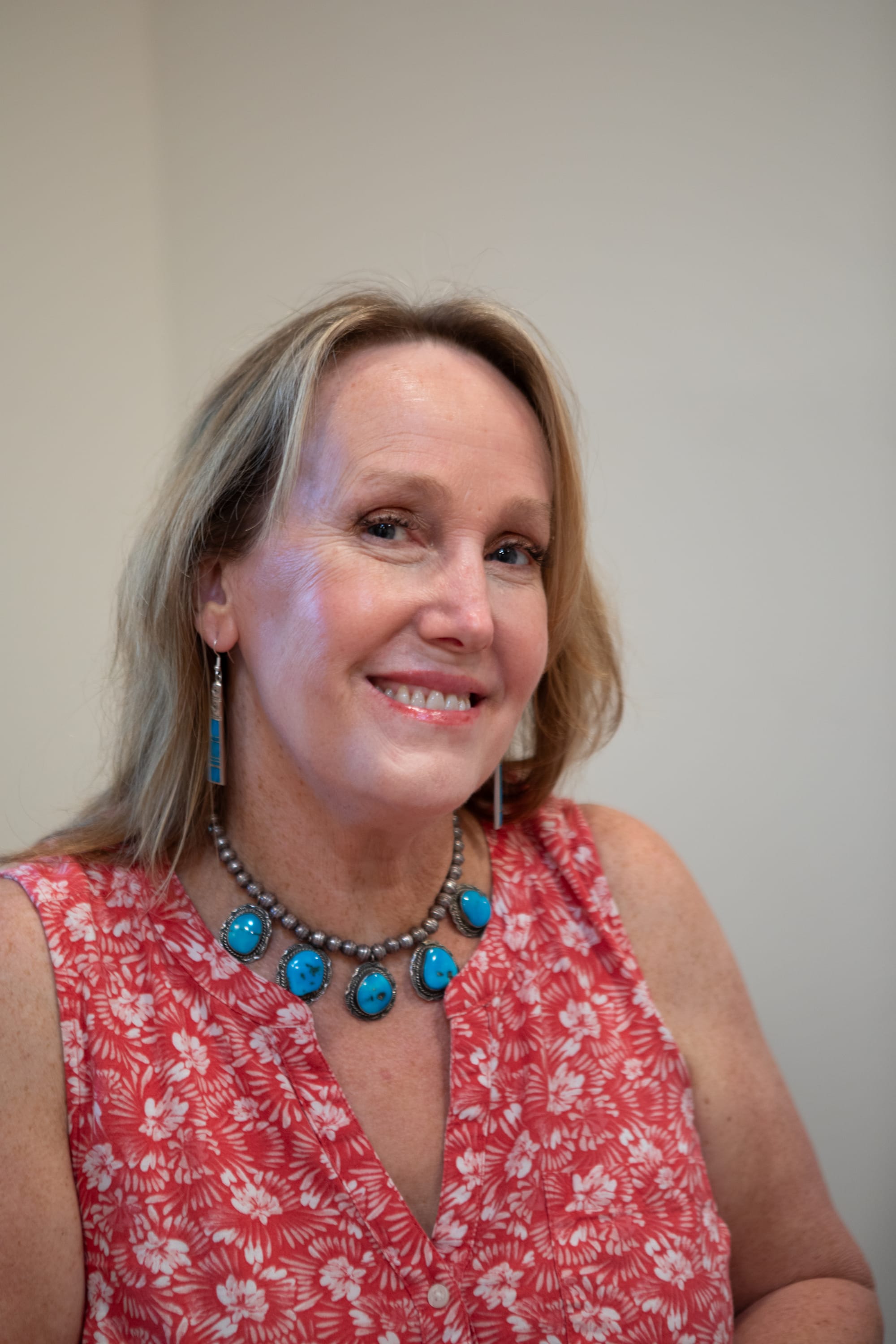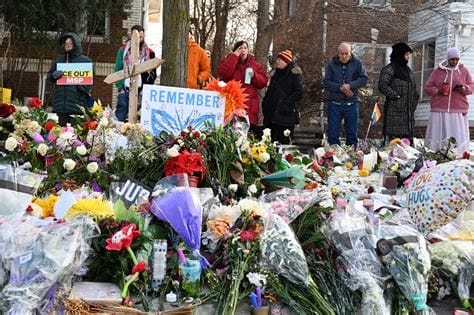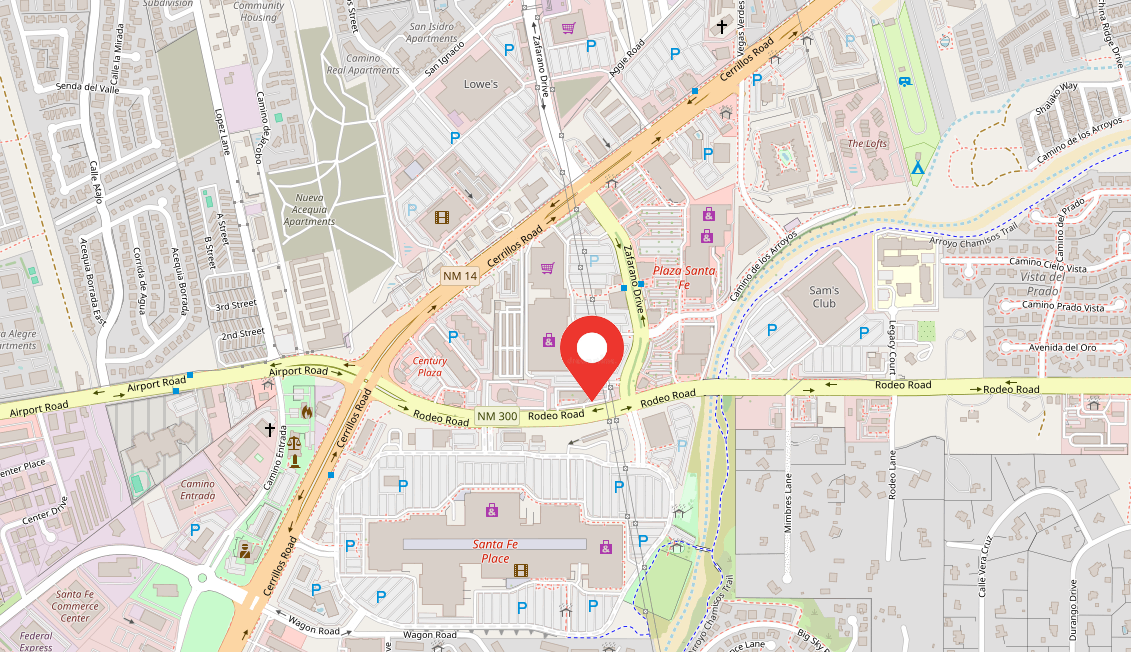On August 23, folks from Indivisible groups all cross New Mexico met in Albuquerque – the Marriott Pyramid North accommodated the hundreds of folks who came out to meet each other, share ideas, and get inspired by some amazing speakers.
The main session with everyone together was about 2/3 of the event. The agenda was jam-packed with inspiring speakers. Indivisible founders Ezra Levin and Leah Greenberg delivered a talk remotely, providing a national perspective and how New Mexico - a Blue Trifecta state - fits into the larger narrative. Leah gave a great analogy about how, in this current situation, we are the firefighters running towards the fire with our buckets, hoping to put out the fire which is our democracy. It is not bravery to do a hard thing when that is the easy choice. Bravery is doing a thing when it is the hard choice.
The Indivisible state liaison, Cameron McCaw-Hennick, came on and talked about the contribution New Mexico is making in the Indivisible fight for democracy. For such a small state, we're punching well above our weight. He called out specifically the need to nurture and grow the smaller Indivisible groups (there was a breakout session on this general topic later, as well).
Representative Gabe Vasquez (CD2) spoke about the fight to keep New Mexico squarely in the Democrat column. He's already fighting against attack ads being launched against him in congressional district 2 even though there is no credible Republican candidate yet. Conservative PACs are spending to the tune of $250K a month and the season isn't even underway yet. Head over to BlueCD2 to join the fight on the side of democracy! (We'll have a postcard writing project in October to support this effort). Gabe also spoke about his record in the US House, emphasizing his commitment to his values over political expediency – and why that accounts for some of the positions he's taken and votes he's cast which are not always popular with the progressive base. Among other things, he pointed out that all politics is local: when people vote, they want to vote for someone who will help them. So a lot of the work is getting the message out that we're the ones who will help, while the Republicans are the ones destroying the services and government that helps us all.
Senator Heinrich's state director, Edward Cubero, represented the Senator who was off ensconcing his child in college – an excuse any of us parents of college-age kids can forgive 😂
I don't recall if it was Gabe or Edward who pointed out that a functioning government is boring. It's about roads getting built, teachers getting to teach. You don't wake up wondering what fresh chaos has arrived. Wouldn't those be great times to get back to?
Rachel Bitecofer gave the keynote speech, summarized best by her opening remarks: she's on a mission to teach Democrats how to be assholes for democracy. For too long, Democrats have played nice, relied on policy-centric, thoughtful appeals to collective interests. Republicans, meanwhile, have leaned in to emotion-based ad hominum attacks, stoked fear and triggered loss aversion ("they're going to take away your guns!"). But these attacks are highly effective, and scale incredibly well. Her point was that it's time to learn some of the mean tricks in their book.
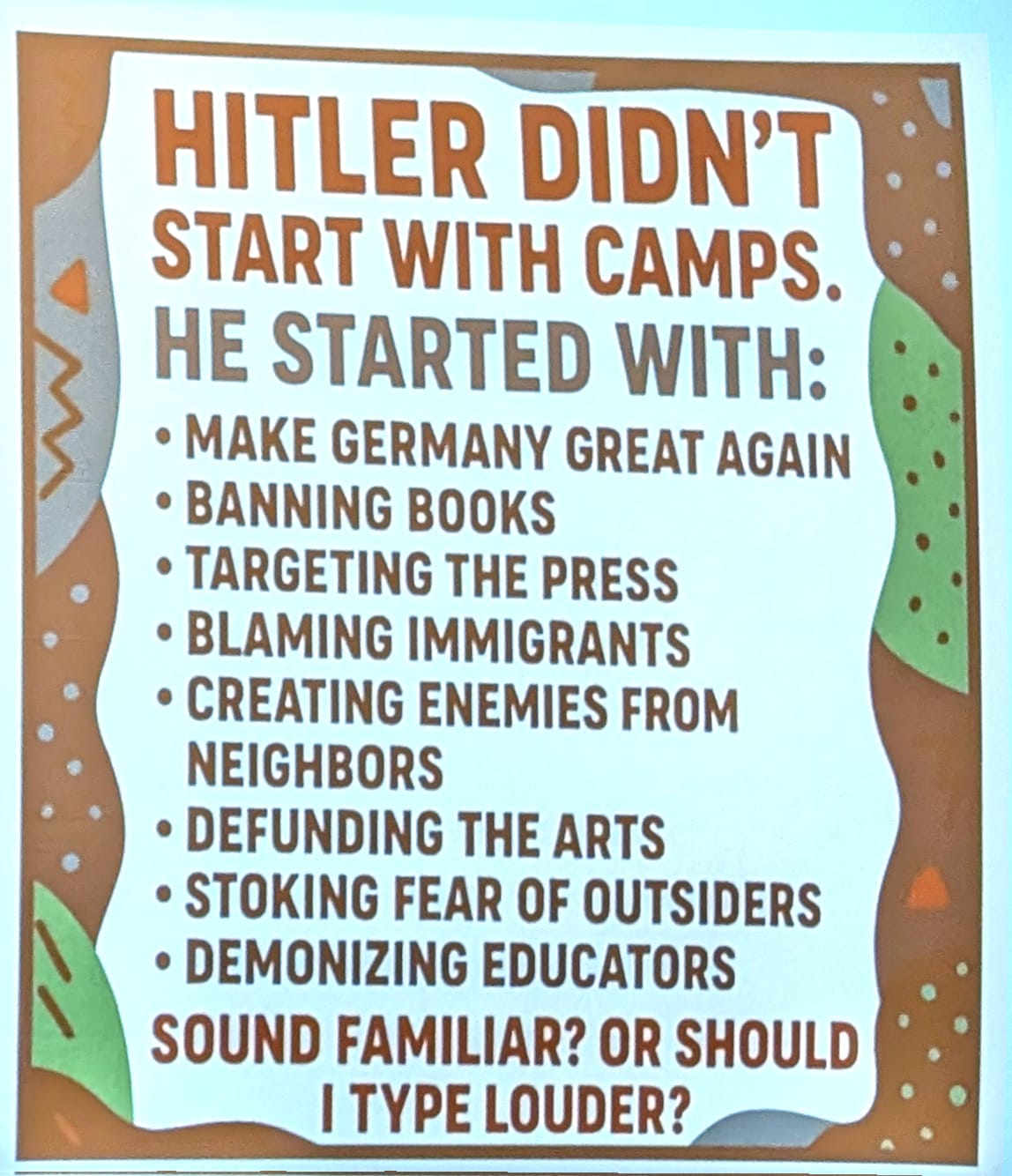
She also had a good graphic showing how people think the different parties are aligned with or effective in dealing with a variety of issues. Based on survey data, the only issue that people broadly understood Democrats were strongly aligned with was LGBTQ rights. All the other issues showed either nominal Democrat alignment or more Republican alignment. Her point was that this is something we need to correct – make it clear that Democrats are generally for things like affordable housing, healthcare, civil rights, fair taxation ..., and against things like school shootings with military-style weapons ... you know, things pretty much everybody wants.
Then there were a couple of talks describing how New Mexico particularly is fighting against the Trump regime. NM Land Commissioner Stephanie Garcia Richard talked about the public lands fight, NM Attorney General Raul Torrez described the (many) lawsuits that NM has participated in or led to slow down the Trump regime and the various levers we have to resist the anti-democratic moves from the regime. NM Secretary of State Maggie Toulouse Oliver leaned in to election integrity and how our elections are considered some of the best run in the country, making it clear that NM is not going to comply in advance with the regime's attempt to interfere in state election processes.
There was a panel discussion around journalism, with three New Mexico reporters talking about the challenges of the new media landscape.
Representative Melanie Stansbury (CD1) gave a fiery talk about what the fight for democracy looks like in DC, and doubled down on the need to reelect Gabe Vasquez in CD2. She described his seat as a "canary in the coal mine" and the Republican machine is pulling out all the stops to take that seat; if they succeed, it will signal the unraveling of our democracy.
And a smorgasbord of breakout sessions included:
Effectively Engaging with the NM Legislature: A Case Study
This was put on by the Veterans & Military Families Caucus of the Democratic Party of New Mexico. Claudia Risner (the former chair) and Frank Smith (the new chair) came out to talk about how their group has developed a good working relationship with legislators, and how they make it work. They described their finely tuned machine for working with the NM Legislature. They spend a lot of time planning and thinking through what issues are important, and making sure they aren't asking for things that are fiscally irresponsible.
They also don't tend to get involved in primaries – their focus is on supporting their preferred candidate against the other party, and not as much on picking among contenders for a Democratic nomination.
They do prioritize their legislative issues, and focus on the subset which most overlaps with their interests. For key priorities, they develop a position paper that they share with the folks on relevant committees so that their perspective is readily available during committee meetings. Among other things, they maintain a legislative watch database to track bills of interest through the legislative process, so they know when and where to make a concerted effort. We do that sort of thing also, but their processes are highly refined and something I think we can learn from.
Forming, building, and strengthening new Indivisible groups
Rayellen Smith, Pam Hett, and Terry Eisenbart gave a breakout session on how to build up Indivisible groups throughout New Mexico, especially in the smaller communities. They called out the importance of communications (something near and dear to my own heart ❤️). Consistency and quality are super important to develop trust with a social media audience – no surprise there! They had some ideas about recharging during the marathon as well; teambuilding activities, social hour, etc.
I also learned that Indivisible national provides access to a Customer Relationship Management (CRM) tool called EveryAction, which might wind up being useful for Indivisible Santa Fe as we scale.
Where have all the Doctors Gone?
A panel of physicians and people working in the healthcare space dug into the difficulties of sustaining a robust provider community in New Mexico. Probably everyone in Santa Fe has experienced this themselves – the chronic provider shortage.
The panel included perspectives from the legal/litigation side, the business angle, providers of course, and Fred Nathan from Think NM, a think tank serving New Mexico that had recently released a report on the subject: Solving the Health Care Worker Shortage.
The issues discussed included:
- the lower average income from patients because of the high ratio of Medicaid and Medicare recipients
- the higher costs of malpractice insurance because of unbounded punitive damages for claims (there was some heated discussion in the panel when the lawyer stated that malpractice compensatory claims were capped, causing other panel members to point out the misleading nature of that claim since punitive damages are not capped)
- the higher taxes because our Gross Receipts Tax system includes medical services, compared to the more common Sales Tax system which typically does not include medical services
- the difficulty of transferring practice because NM is not part of an interstate agreement ("compact") that would make it easy for a provider to move to NM
- the relative low level of student loan repayment options in NM compared to other states
In general, when NM is competing against other states to attract providers, it is at the losing end on many fronts. A provider moving from, say, Texas is far more likely to see Colorado as an attractive option.


